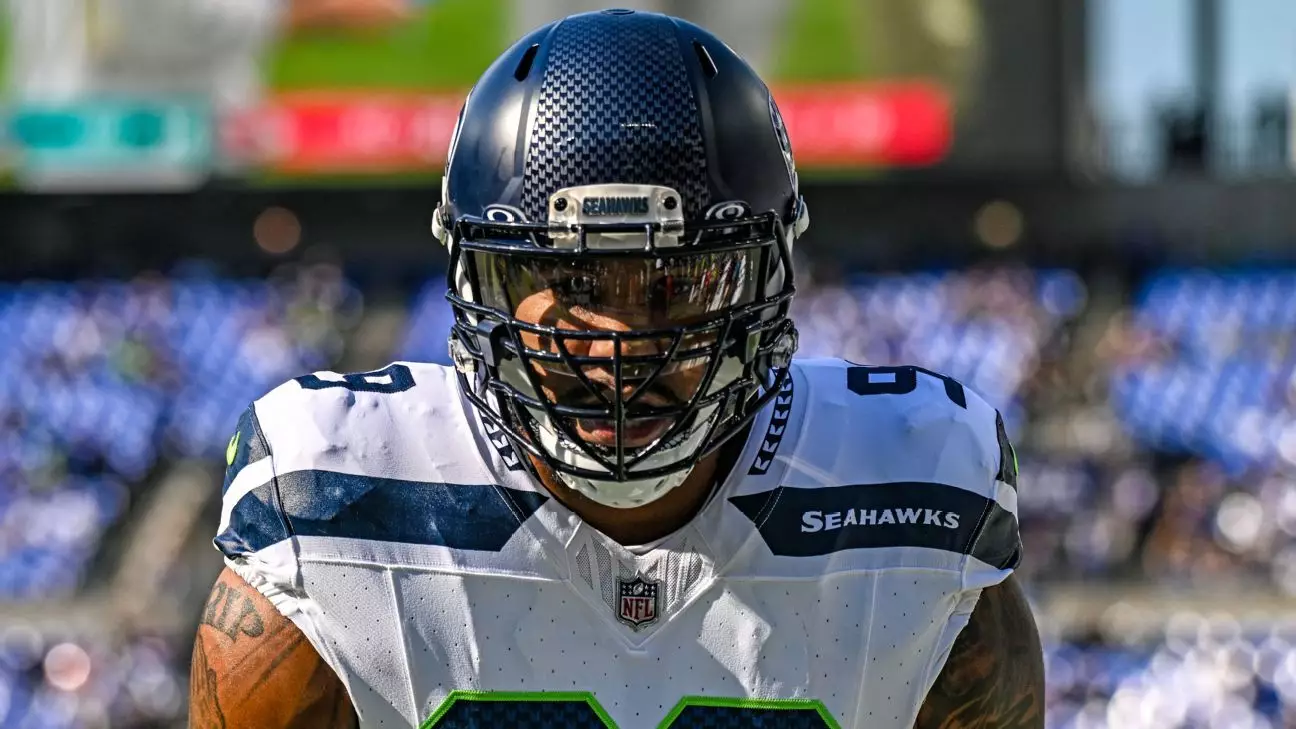The annual Pro Bowl announcement often brings a mix of elation and frustration, particularly for players whose seasons may not align with how they are perceived in the league. This year, the Seattle Seahawks encapsulated these sentiments through the contrasting experiences of Devon Witherspoon and Leonard Williams. The recognition of talent within the NFL often seems skewed, prompting deeper questions about performance evaluation and systemic biases.
Devon Witherspoon has established himself as a formidable presence in his position, culminating in his second consecutive Pro Bowl selection. Drafted fifth overall in 2023, his assertion in the role of cornerback has been noteworthy, even if his stat line, which lacks interceptions and includes only a single sack, does not paint the complete picture of his season. He represents the evolving metrics of defensive success, where the effects of coverage can often go unnoticed by traditional statistical measures. In a sport as dynamic as football, the contributions of players like Witherspoon underscore the role of grading systems by analysts that focus on defensive positioning, tackling efficiency, and overall field impact—an aspect often overlooked in the grand context of team stats.
He expressed gratitude for his selection, but shock at the fact that his teammate, Williams, was not similarly recognized. Witherspoon candidly described the voting process as “crazy,” emphasizing what many fans and experts observe: that some clear-cut deserving talents are frequently left out of the conversation while others are chosen without apparent justification.
On the opposite end of the emotional spectrum was Leonard Williams, a player whose disappointment was palpable. Despite a career-best season that features nine sacks and a historical interception return touchdown, Williams’ omission from the Pro Bowl has raised eyebrows and questions among both fans and peers. Williams, well-versed in the systemic nature of the Pro Bowl voting procedure, lamented the frustration stemming from his continued exclusion despite his impactful performances.
His history of being bypassed for the Pro Bowl—previously seen when he achieved 11.5 sacks in 2020—highlights a troubling pattern that can undermine a player’s reputation as they accumulate years in the league. While he graciously recognized the merits of those ultimately selected, it was clear that the emotional burden of being overlooked resonated deeply with him.
Moreover, Williams’ contributions this season are not just quantified by his sack total but are augmented by leading figures in tackles for loss and quarterback hits among NFC interior linemen. This disparity between numerical success and external recognition leads to discussions about bias—both in how the Pro Bowl selections are made and the disparities between larger market franchises and those like Seattle.
Geno Smith’s comments regarding the biases tied to media market dynamics reflect a key component of the narrative surrounding Pro Bowl selections. His observation about players from Seattle experiencing snubs mirrors broader critiques within the sports community about how visibility, media representation, and fan engagement can impact a player’s recognition. Those who earn sustained excellence in less prominently covered teams sometimes find themselves at a disadvantage when it comes time for voting.
Looking further, it raises questions about the league’s decision-making structures and how they might evolve to incorporate a more objective analysis of player performances. As player legacies often hinge on accolades, the Pro Bowl carries weight beyond just a glorified exhibition; it can shape future contracts, endorsements, and overall influence in the sport.
In light of these revelations, there is an ongoing conversation among fans and analysts about potential reforms to the voting process. Whether in addressing systemic biases or incorporating advanced analytics, finding ways to ensure that deserving players receive recognition for their contributions is vital.
The recognition of alternate selections, while providing a backup option for players like Williams, does not seem to satisfy the deeper need for equity in awards that symbolize excellence. Whether it involves a reevaluation of the voting process or a push for clearer criteria that prioritize individual performances over team narratives, there is a need for systemic change.
While Witherspoon enjoys the accolades of his second Pro Bowl, the sentiment surrounding Williams’ snub invites a nuanced conversation about fairness, visibility, and recognition in professional sports. Ultimately, the stories of these two Seahawks players highlight not only the complexities of athlete recognition within the NFL but also call for a continued push toward equity and transparency in how success is evaluated and celebrated.


Leave a Reply